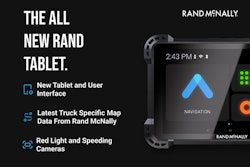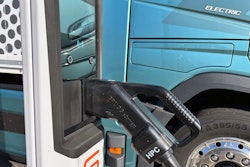Update March 4, 2024: A federal district court in Alabama found the new reporting requirement for many small businesses detailed in this story unconstitutional with judgment on a lawsuit brought by the National Small Business Association. Read more about that suit via this link. Original story follows.
The United States Treasury's Financial Crimes Enforcement Network (FinCEN) now administers a reporting system aimed at all manner of small businesses throughout the United States. Since the first of this year, any newly established LLC, corporation, LLP and some other business types, including any owner-operator or small fleet who's filed with their Secretary of State to establish the business, have 90 days to report Beneficial Ownership Information (BOI) to FinCen and the Treasury.
The requirement is also in play for businesses that existed prior to the first of the year, noted Tim Hill, entity service manager for owner-operator business services firm ATBS. Those owner-operators and many small fleets, though, have much more time to report -- the deadline to complete the filing with FinCEN is the end of 2024.
Penalties for not doing so can be "pretty severe" by the letter of the law when it comes to the BOI reporting program, said Hill, with civil fines of $500 per day beyond a business's deadline to report, and potential criminal penalties up to imprisonment for the worst cases.
If that sounds harsh for what amounts to failure to check a few boxes on an online form, there's a reason Treasury is motivated here. The new BOI program was created as a result of the Corporate Transparency Act, legislation passed in Congress in 2021 as part of that year's Defense reauthorization package and aimed at the problem of money laundering from abroad and at home through shell companies, said Hill.
Laundering is fairly easy to do when "no one knows who owns" the company, he said, and "this is an attempt to fix that."
The good news is that reporting looks to be a fairly simple matter for most owner-operators, requiring little more than an individual owner's name, date of birth, address and identifying document like your CDL or passport. The owner applicant must identify his/her company with its name, address and Employer Identification Number (Social Security number will suffice, too, for most one-truck businesses that are LLCs, Hill said), identifying then any other individual either with "substantial control" of the business or with an ownership stake above 25%, such as they may exist.









